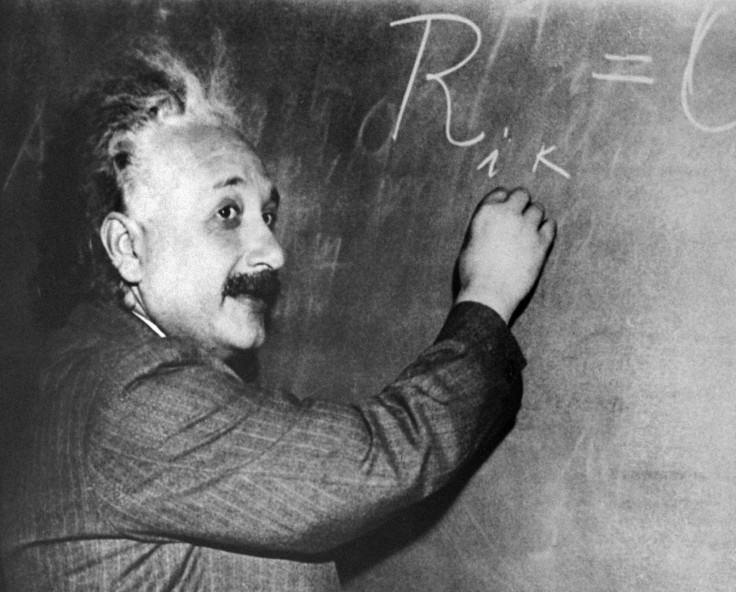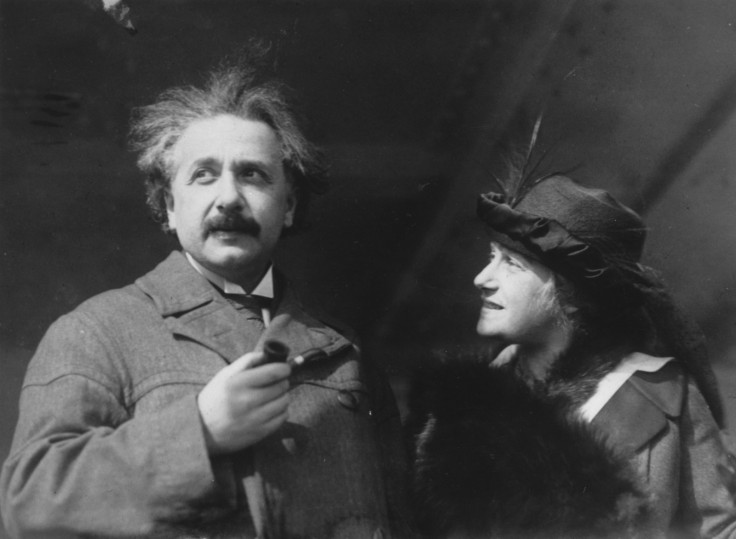Albert Einstein: 10 facts about genius behind theory of relativity on 60th anniversary of death

Today (18 April) marks 60 years since the death of Albert Einstein, the theoretical physicist who developed one of the pillars of modern physics who made the word "Einstein" synonymous with genius.
Best known in popular culture for his mass-energy equivalence formula, E=MC² – the "world's most famous equation" – Einstein changed the philosophy of science, paving the way for theoretical physics as we know it today. On the anniversary of Einstein's death in 1955, we look at some interesting facts about the famous physicist.
Sailing
Einstein never learnt to swim but he was a keen sailor. During his studies at the Polytechnic Institute in Zurich, Switzerland, he would often take a boat out and think.
Einstein's brain
Einstein's brain was removed within seven-and-a-half hours of his death, in a lab at Princeton Hospital by pathologist Thomas Stoltz Harvey. Whether or not Einstein's brain was preserved with his prior consent is a matter of dispute – but it is known that Harvey kept some of the dissected pieces to himself while others were given to leading pathologists.
Israel's president
Shortly after Zionist leader and first President of Israel Chaim Weizmann died on 9 November 1952, Einstein was asked if he would accept the position of being the second president of Israel. Einstein declined the offer, saying he was too old at 73 and lacked the "natural aptitude and the experience to deal properly with people".
Socks
Einstein never wore socks. "When I was young, I found out that the big toe always ends up making a hole in the sock," he once said. "So I stopped wearing socks." He also refused to "dress properly" for anyone.
Smoking
As an avid smoker, Einstein was never seen without with his pipe. In 1950, he was noted as saying: "I believe that pipe smoking contributes to a somewhat calm and objective judgment in all human affairs."

Marriage
After Einstein divorced his first wife, Mileva Maric, in 1919, he married his cousin, Elsa Lowenthal. She was actually related to Albert on both sides of his family: Albert's mother and Elsa's mother were sisters, plus Albert's father and Elsa's father were cousins.
Compass
Einstein's fascination with science began when he was five years old and sick in bed. His father showed his a compass, which piqued his interest about the force exerted on the moving needle.
Daughter
In the 1980s, it was discovered that Einstein had an illegitimate daughter in 1902 called Lieserl. In 1901, before Einstein married Maric, the couple had a romantic holiday in Lake Como in Italy.
Maric found herself pregnant and since Einstein did not have the money to marry or support the child, Maric returned to her family to have the baby girl. The final reference to Lieserl in Einstein's letters was in 1903. It is thought she died of scarlet fever or was given up for adoption.
Agnostic
Einstein was not an atheist. "I have repeatedly said that in my opinion the idea of a personal god is a childlike one," he explained at one point. "You may call me an agnostic, but I do not share the crusading spirit of the professional atheist whose fervour is mostly due to a painful act of liberation from the fetters of religious indoctrination received in youth.
"I prefer an attitude of humility corresponding to the weakness of our intellectual understanding of nature and of our own being."
1905
The year 1905 was when Einstein did some of the most creative work of his life, producing four ground-breaking articles. The fourth paper was about the relationship between mass and energy, two concepts previous viewed as entirely separate. Einstein's equation E=MC² expressed this relationship.
© Copyright IBTimes 2024. All rights reserved.






